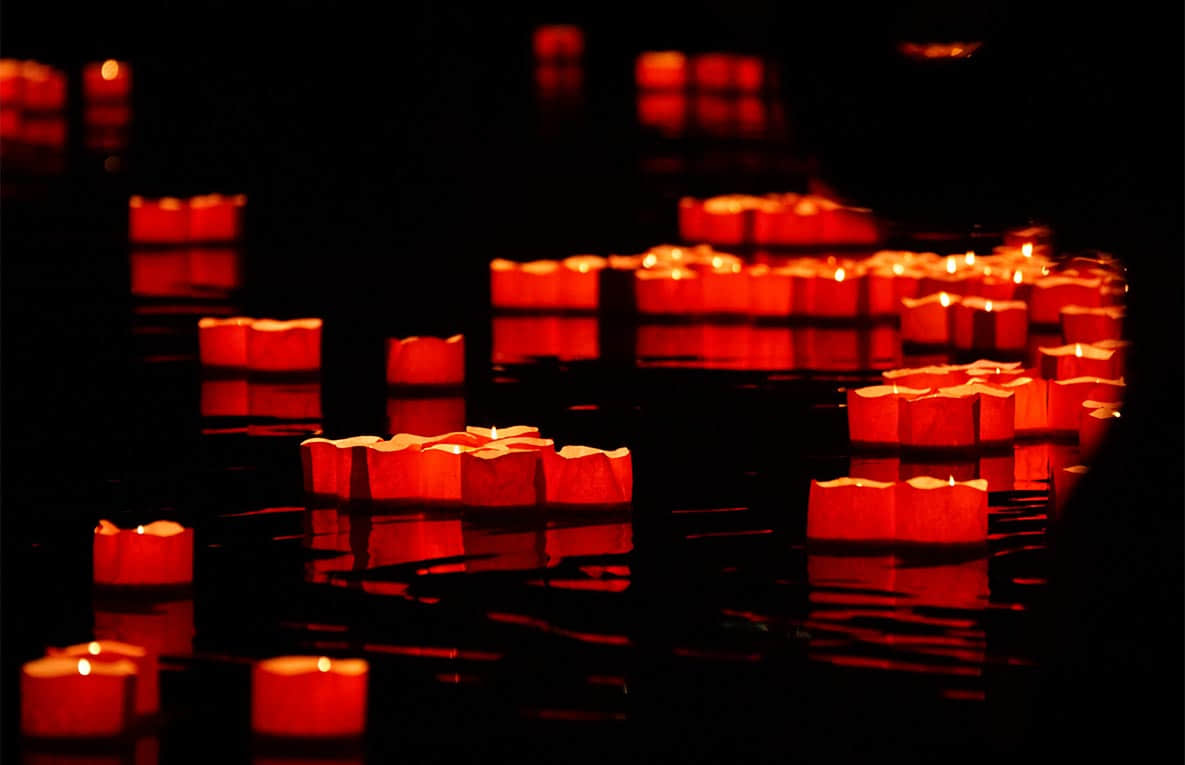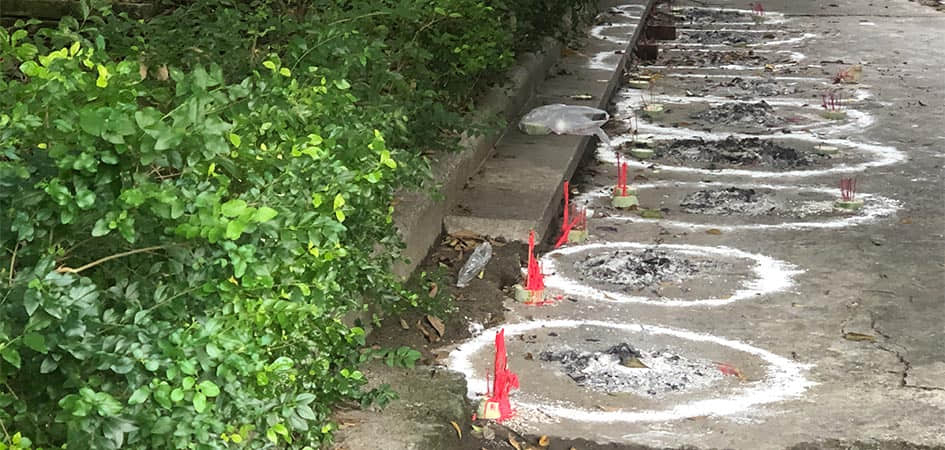Zhongyuan Jie - Hungry Ghost Festival

What is Zhongyuan Festival?
Held annually on the fifteenth day of the seventh lunar month, this day is known as the Ghost Festival (鬼节|鬼節 guǐ jiē) among the people, the Zhongyuan Festival (中元节|中元節 zhōng yuán jiē) in Taoism, and the Ullambana Festival (盂兰盆节|盂蘭盆節 yú lán pén jiē) in Buddhism, presenting an integration of monastic and secular traditions. In some localities, the Ghost Festival is observed on the fourteenth day of the seventh month, hence also being referred to as the 'Mid-July'. Based on existing literature, the term 'Zhongyuan' originated from the Taoist terminology during the Wei, Jin, and Southern and Northern Dynasties era.

Taoism designates the nights with a full moon on the fifteenth day of the first, seventh, and tenth lunar months as the Shang Yuan, Zhong Yuan, and Xia Yuan festivals respectively.
The Shang Yuan Festival falls on the fifteenth day of the first lunar month, said to be the birthday of the Heavenly Official, when heavens are worshipped.
The Xia Yuan Festival, on the fifteenth day of the tenth lunar month, marks the birthday of the Water Official, denoting rites for water.
The Zhongyuan Festival on the fifteenth day of the seventh lunar month is believed to celebrate the birthday of the Earth Official. Legend has it that the Earth Official descends upon the mortal realm on this day to judge people's virtue and sin.
These festivals, known collectively as the '3 Yuan Festivals', signify the conveyance of blessings by the Heavenly Official during Shang Yuan, the dispelling of calamities by the Water Official during Xia Yuan, and the absolution of sins by the Earth Official during Zhong Yuan.
Common customs of the Zhongyuan Festival include burning joss paper and releasing river lanterns. These acts are meant to guide one's ancestors and celebrate the festival for spirits. Lanterns are also lit on the Shang Yuan Festival, but they are typically hung, since it celebrates the world of the living. Conversely, water is associated with the netherworld, so Zhongyuan Festival lanterns are naturally set afloat in the water. The tradition of releasing river lanterns traces back to primitive societies, when fire was perceived as the origin of all things, and releasing lanterns into the river was a form of worship.
Among the various versions of the Ghost Festival celebrated in China, the grandest is the Zhongyuan Festival on the Mid-July, seen as a fusion of popular folk, Taoist, and Buddhist traditions. Besides the Zhongyuan Festival, others are observed on the third day of the third lunar month, the first day of the tenth lunar month, and even during Qingming Festival, with some regions including the sixth day of the sixth lunar month. The reason Qingming Festival is rarely referred to as Ghost Festival is mainly because the memorial activities typically take place during the day, and only involve ancestors of one's household.
Ghost Festival Dates for 2025
2025 Ghost Month: 08/22 (Fri) - 09/19 (Fri)
2025 Ghost Festival: 09/06 (Sat)
Future Ghost Festival Dates for the Next 4 Years
2026 Ghost Month: 08/12 (Wed) - 09/09 (Wed)
2026 Ghost Festival: 08/26 (Wed)
2027 Ghost Month: 08/31 (Tue) - 09/29 (Tue)
2027 Ghost Festival: 09/14 (Tue)
2028 Ghost Month: 08/19 (Sat) - 09/16 (Sat)
2028 Ghost Festival: 09/02 (Sat)
2029 Ghost Month: 08/10 (Fri) - 09/07 (Fri)
2029 Ghost Festival: 08/24 (Fri)
When does the Ghost Gate open?
According to traditional beliefs, the Ghost Gate first opens on the first day of the 7th lunar month. On the night of the 14th day of the 7th lunar month (11:59pm), which is early morning of the 15th day (00:00am), the Ghost Gate is considered fully open. It then slowly closes, until the Ghost Gate is completely shut on the 30th day of the 7th lunar month.
So in summary:
- Ghost Gate starts to open: 1st day of 7th lunar month
- Ghost Gate is fully open: Night of 14th day / early 15th day
- Ghost Gate slowly closes: 15th day onwards
- Ghost Gate completely shut: 30th day of 7th lunar month
The 15th day of the 7th lunar month, when the Ghost Gate is open, is known as Ghost Festival or Zhongyuan Festival. During this time, ghosts and spirits are believed to be able to freely move between the spirit world and the human realm. The opening of the Ghost Gate enables ghosts to interact with the living.
8 Taboos to Avoid during the Hungry Ghost Festival
Don't come home too late
After sunset, the yang energy is weaker and people feel more tired than in the morning. Combined with poorer visibility at night, those who are sensitive may get easily frightened.
Don't swim in unfamiliar bodies of water
Elders often advise not to swim, especially in unfamiliar bodies of water, during the Ghost Festival. It is believed that this period is when water ghosts take turns to come out, so swimming in unfamiliar waters increases the risk of accidents.
Don't stick chopsticks upright in rice bowls
By custom, only offerings are stuck with incense. Sticking chopsticks upright in rice bowls may cause them to be mistaken for offerings and attract greedy spirits, affecting health.
Don't pat shoulders or heads
According to folk beliefs, the living have three fires on their shoulders and crowns to protect against yin influences. Patting others' shoulders or heads may put out the fires and attract frights.
Don't step on spirit money
Spirit money on the ground is burnt as offerings to ghosts. Stepping on them offends the ghosts and brings misfortune.
It's believed such money is meant for Ox-Head and Horse-Face and those who pick it up invite misfortune.
Don't steal offerings
These hold special meaning and stealing them shows disrespect to ancestors, risking misfortune.
Don't hang wind chimes or whistle
These attract ghosts and spirits, so avoid them to prevent frights.